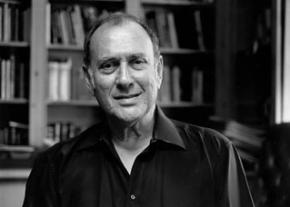Speaking truth about power
celebrates the life and writings of Harold Pinter.
THE PLAYWRIGHT and outspoken political activist Harold Pinter died December 24 in London at the age of 78, after a battle with cancer of the esophagus.
Pinter was the author of several classic plays: The Birthday Party (1957), The Caretaker (1959), The Homecoming (1964), Betrayal (1978), and Celebration (1999). He also acted in theater and film, directed numerous plays, and wrote screenplays for movies, including The French Lieutenant's Woman (1980).
Pinter changed modern theater with his earliest plays, by exploring the way language--and, most famously, silence--concealed or exposed relations of power and exploitation.
He addressed these questions in his political essays as well. In 1990, he wrote:
Does reality essentially remain outside language, separate, obdurate, alien, not susceptible to description? Is an accurate and vital correspondence between what is and our perception of it impossible? Or is it that we are obliged to use language only in order to obscure and distort reality--to distort what happens--because we fear it?
We are encouraged to be cowards. We can't face the dead. But we must face the dead because they die in our name. We must pay attention to what is being done in our name.

In his one-act play Mountain Language (1988), he describes a prison where the prisoners are forbidden to speak their own language, but must speak the language of the state. When a mother is finally allowed to see her son, Pinter shows how the two find ways to communicate, despite the strictures of the prison guards.
As a playwright, Pinter often found ways to upset audience expectations and the norms of theater. As historian Howard Zinn said in an interview after Pinter's passing: "Harold Pinter's plays were odd, quixotic, provocative, upsetting--not directly political, but pushing the audience outside the boundaries of conventional theater. In that sense, his drama was comparable to his political views, which often upset, even shocked his admirers, as they contemplated his challenges to the conventional ideas about war, about injustice, about capitalism."
AT AGE 18, Pinter, who had been born in Hackney in East London, refused to take part in the British National Service. He faced a series of legal battles and fines after he declared himself a conscientious objector.
Pinter began to speak out very publicly on politics after the 1973 assassination of the Chilean socialist president Salvador Allende. He campaigned against war, torture and suppression of civil liberties, and lent his name to numerous human rights campaigns.
After winning the Nobel Prize for Literature in 2005, Pinter used the occasion to deliver a remarkable speech denouncing the U.S. invasion and occupation of Iraq, which he called "an act of blatant state terrorism," placing it in the context of the long history of U.S. imperialism.
In the address, which he delivered via television from a wheelchair, as he was unable to attend the ceremony because of his illness, he said:
The majority of politicians, on the evidence available to us, are interested not in truth but in power and in the maintenance of that power. To maintain that power it is essential that people remain in ignorance, that they live in ignorance of the truth, even the truth of their own lives.
I believe that despite the enormous odds which exist, unflinching, unswerving, fierce intellectual determination, as citizens, to define the real truth of our lives and our societies is a crucial obligation which devolves upon us all.
The speech led to fury in both liberal and conservative circles.
The New York Times could barely contain its outrage, noting that "The playwright Harold Pinter turned his Nobel Prize acceptance speech on Wednesday into a furious howl of outrage against American foreign policy," adding, "The literature prize has in recent years often gone to writers with left-wing ideologies."
Afterwards, the Times was compelled to print this correction to its article on Pinter winning the prize: "An article on Thursday about the playwright Harold Pinter's criticism of American foreign policy in his acceptance speech for the Nobel Prize for literature described it incompletely. He said that both President Bush and Prime Minister Tony Blair--and not just Prime Minister Blair--should be tried before the International Criminal Court of Justice for the invasion of Iraq."
For a playwright so well known for his silences, Pinter always had a way of having the last word. His loss is an immense one for the arts and dissent, but his forceful, engaging, inventive words will long outlive him.


